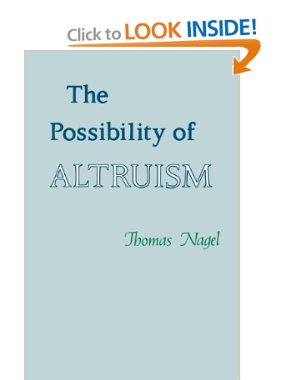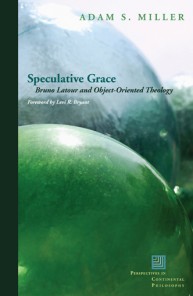Category: Cornucopia
-

To LDS Seminary Teachers Everywhere
My husband and I are both graduates of LDS seminary. I, by the skin of my teeth after a lingering bout with mononucleosis and a pile of home study booklets. Sam, after being on seminary council and a master seminary bowler. So far our children have attended 18 total years of seminary instruction in two…
-
Why I’m glad Heavenly Mother is as yet uncorrelated
There is something creative about getting to know God: to recognize the infinite attributes of God and to express that ineffability in testimony and story, art and song. Sometimes, one person’s vision of God becomes codified, set in stone as the truth for all people. It may be a beautiful, profound view of God, one…
-

Giving lectures in Paris on “The Bible from Yesterday to Today”- Help me narrow my topics.
I’ve been asked to give a series of three 1-hr lectures on the Bible in French, to be held at three different LDS chapels in Paris, beginning in mid-June. (Yes, we’re currently in Paris, where man can live on bread alone. Quite happily, too.) These lectures will be open and advertised to the public, as…
-
Rereading A Prayer for Owen Meany
I never re-read books, but I decided to read this one, twenty-two years after I first read it, because “he is the reason I believe in God; I am a Christian because of Owen Meany.” That’s a quote from the first sentence of the book, but it is true, literally true, for me, too. I…
-
Chastity and Virginity
I have been trying to think through Elizabeth Smart’s remarks about chewed up gum and the way that we teach chastity to our youth. I have never heard the chewed up gum analogy, but I remember stories about cupcakes passed around and similar visual aids. I always thought there was something ugly about these lessons.…
-
How Things That Were Never Going to Change Have Sometimes Changed Anyway
In March at BYU I gave a talk, or more accurately for a guy who can barely use Power-Point, a multi-media extravaganza, involving at least 10 non-fancy slides with absolutely nothing moving around on them. The topic was the title above. For those who want to skip the movie and just read the book, I…
-

Stewards of Prudence and Altruism
Prudence and altruism combined allow us to delay personal gratification or even make sacrifices for the benefit of future people who have not yet been born. The hearts of the fathers must turn to their children
-

Post Number 6,000
I just noticed that this is Times and Season’s 6,000th published post. Congratulate us or excoriate us as you wish.
-
Book Review: L. Tom Perry: An Uncommon Life
L. Tom Perry: An Uncommon Life: Years of Preparation by Lee Tom Perry.
-
Can we can?
There’s a flurry of facebook posts flying today, based on discussions at right wing survival websites about an alleged decision by the LDS church to stop canning in the Eastern part of the United States, due to excessive government regulation. Has anyone heard about this? Can we still can?
-

An Open Letter to Mormon Thinkers
Last week I published something in a prominent series at a first-rate university press. It is, I think, the most rigorous, speculative, and systematic attempt at a professional take on Mormon philosophy, ever.
-
Joseph Smith’s Study of the Ancient World – Online!
The 2013 Church History Symposium now has most of the videos from the conference online (you can see the lineup for the conference here). I think the conference, it’s organization and execution, was a significant step forward for church-sponsored scholarship (or more precisely, was a continuation of the significant steps the church has been taking recently) –…
-
Tattooed
On his deathbed, Queequeg asks the ship’s carpenter to fashion him a burial canoe. So fashioned, Queequeg demands to lay himself the length of it, testing its virtue. Then, having abruptly remembered something he’d forgotten to do, he decides not to die after all and rises from the grave.
-

Another Post about Mormons and Science Fiction
The topic of Mormons and science fiction seems to crop up with decent regularity every couple of years, and with the recent release of the film adaptation of The Host and the impending release (finally!) of the film adaptation of Ender’s Game, we’re probably about due for another round. This is a topic that I…
-

Dell, Obedience, and Parachute Mishaps
Last week, as the PC market faced DOOM!, Dell had a potential buyer, Blackstone, back out. While that was not particularly interesting to me, what happened next was. Another investor, Oakmark Funds, sold their 24.5 million Dell shares. To quote: A “potential acquirer with access to non-public information decided to end its quest to acquire…
-
Mustard sandwiches and melted ice cream
This is a talk I delivered in Sacrament Meeting this past Sunday, on the topic “Using General Conference addresses in our personal study.” At the center of Mormon self-understanding is the idea that God reveals himself in the present day, to prophets and to individuals.What, then, is the character of that continued revelation? We’ve…
-
Joseph Smith and the Aufhebung of the Reformation (and of Catholicism)
How should Mormons feel about the Reformation? On the one hand, we tend to valorize figures like Tyndale and Luther who defied the religious authorities of their time, setting the stage in many ways for our own radical break with tradition. On the other hand, the need for a Restoration presupposes that the Reformation wasn’t…
-
Seeking New Gifts From God
“Eye hath not seen, nor ear heard, neither have entered into the heart of man, the things which God hath prepared for them that love him.” Thus teaches Paul in 1 Corinthians 2:9. The things that God has planned for us are more wonderful than we can imagine. As wonderful as what we have received…
-
An Ensign Is Not A Roadmap
Goal-setting is a perennial, and for some perennially frustrating, part of Mormonism. I count myself among the frustrated. I have been setting weekly goals for myself since I was a teenager, and I don’t think I’ve ever achieved them all for a single week. I’m getting closer, however. Although I believe that goals are positive…
-
Protecting Women
RadioWest hosted a discussion about Mormon Women and the Priesthood this week. It is worth a listen.
-

-

Joseph Smith and the failure of the Reformation
One of the paradoxes of Mormonism is the heroic status it grants Martin Luther while simultaneously rejecting all of his central teachings. Mormon teachings and the basic narrative of the Restoration in some cases even suggest that the Reformation, however necessary it may have been, was not only incorrect, but also that it was a…
-

Sifting the Sacred from the Mundane
Of all the deaths in Harry Potter, Dobby’s strikes many people the hardest. It did me. There was absolutely no way I could have kept my eyes dry. If John Locke is right, if actions are the best interpreters of mens thoughts, does this mean that my grief was, in the moment, real? Did I…
-
“Some women are concerned that they don’t hold the priesthood.”
I can’t think of anything quite like this video being done before.
-

Books! A small timely plug (updated!)
As you know, we are to study out of the best books, which entails reading. President Hinckley once lamented, “I confess that I am constantly appalled by the scarcity of my knowledge, and the one resentment I think I carry concerns the many pressing demands which limit the opportunity for reading.”
-
Why Gay Marriages are a Good Idea but Marriage Equality Worries Me
Last week, the U.S. Supreme Court heard arguments in Hollingsworth v. Perry, the constitutional challenge to Proposition 8. I sat down to write a blog post about my thoughts on gay marriage and kept writing and writing and writing. You can read the results here. Like a lot of Latter-day Saints, I have spent a…
-

Everything is a Remix, Genesis Edition: Intro
In this recent post (which I plan to revisit in the near future) and others, I mentioned the discovery of various ancient Near Eastern texts related to Genesis, such as Enuma Elish. The relationship between these accounts and Genesis has never been definitively settled, though dominant interpretive trends have been clear. At first, German scholars such as Friedrich…
-
BYU to Announce New Honor Code!
At Times and Seasons, we’ve been given an exclusive sneak peek of the new Honor Code, and it promises exciting changes at our favorite university. Some of the changes include: 1. All men must wear a full beard at all time. Those unable to do so will be considered to be honoring the rule if…
-
Strands of Priesthood
Many discussions about women and the priesthood get muddled because they don’t pay attention to the fact that “priesthood” involves multiple doctrines and practices, with different rationales, functions, and histories. I thought it might be helpful if I separated the strands of priesthood and thought about them separately.
